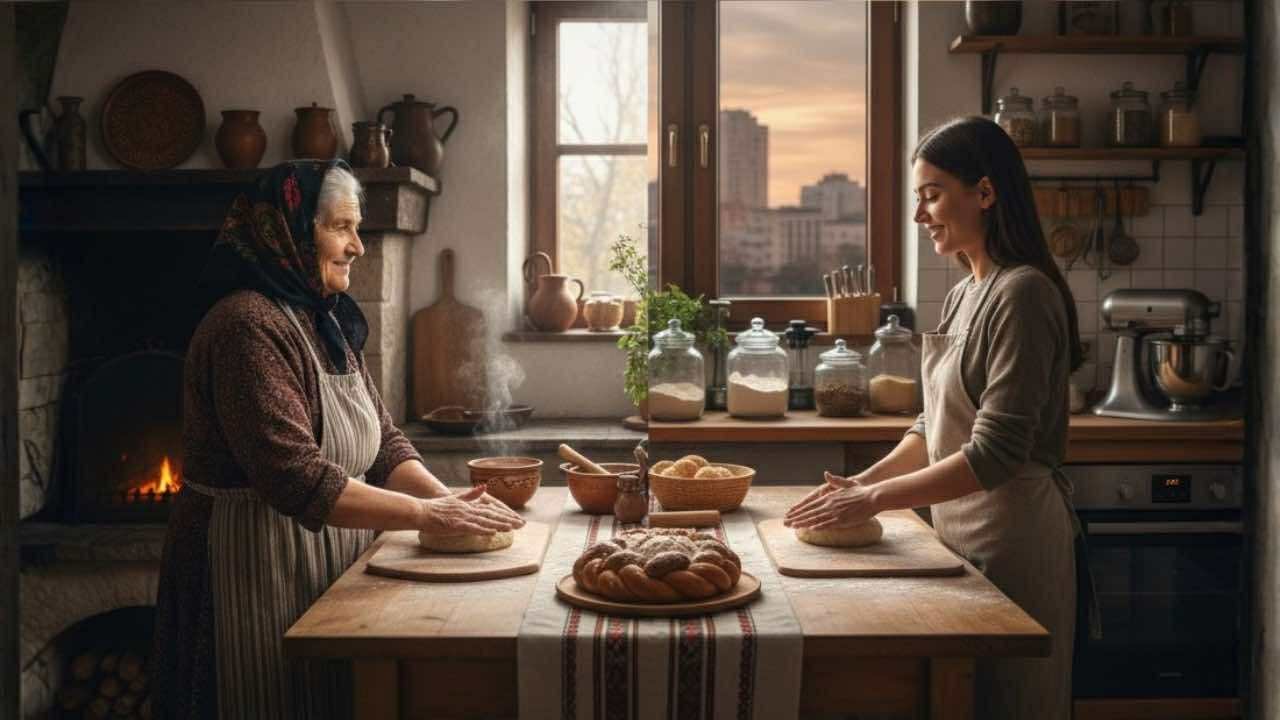Two Worlds, One Table: How Food Connects the Diaspora back to Bijelina
The kitchen in Bijeljina is quiet except for the sound of dough stretching across a wooden table. A mother leans over, her hands moving with the precision of someone who has done this a thousand times. In Bijeljina, pita isn’t just food, it's a tradition. The dough is rolled and pulled until it’s so thin you can almost see the wood through it. It’s a test of patience, skill, and love.
Thousands of kilometers away, in a small kitchen in Switzerland, her daughter Ivana does the same. The countertop is sleek, the views from her window quite different from that of her mother's, but their hands move in the same way as they prepare the pita. Flour dusts the air, fingers tug at the dough, the filling is spooned into the center.
For a moment, they are worlds apart. Ivana's mother looks at her empty table, chairs waiting for her children who have long since left. Ivana looks at hers, far from the chatter of her relatives, her table set for one. The silence of distance is heavy.
But then - a call breaks the lonely silence, and a computer screens light up. Ivana walks up, and sees her beloved mother's face smiling at her. Silence melts into laughter. One call, two smiling faces, and suddenly the meal transforms.
As Ivana lifts her pita from the oven, steam rising as she sets it down on her IKEA table. She watches as her mother pulls her own dish from the pan, the same golden crust as hers. As she sets it on the wooden table, Ivana thinks back to the many meals she shared with her mother, her father, her grandparents, what feels like so many years ago. For a moment, the air seems to carry the same aroma through two different worlds.
They sit, laugh, and share stories between bites, about the neighbors back home, about the new job abroad, about everyday things that feel extraordinary, even when spoken across a screen.
The glow of the phone becomes more than technology. It becomes a bridge. Through that small window of light, two tables separated by miles merge into one. The empty chairs don’t feel quite so empty anymore. The food no longer belongs to two kitchens, but to one family, one heritage, one unbroken connection.
This is the story of countless families across the Bosnian diaspora. A taste of home is never just a meal. It is belonging, memory, and identity all on one plate. Because in the end, it doesn’t matter if you are in Bijeljina, Switzerland, or across the ocean.
One table. Two worlds. Same taste of home.
— Youth Media in Jajce students

